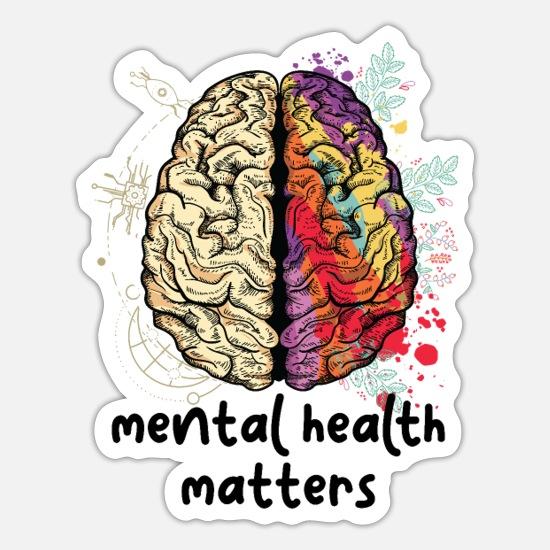Childhood trauma can have profound and lasting effects on an individual's mental health well into adulthood. Understanding the impact of such early adverse experiences is crucial for both mental health professionals and those who have experienced trauma. This article explores the various ways childhood trauma can affect adult mental health, the mechanisms behind these effects, and the importance of addressing these issues for long-term well-being.
Types of Childhood Trauma
Childhood trauma can stem from various sources, including physical, emotional, or sexual abuse, neglect, witnessing domestic violence, or experiencing the loss of a loved one. Each type of trauma can have unique effects, but they all share the potential to disrupt a child's development and psychological well-being.
Immediate Effects of Childhood Trauma
The immediate effects of childhood trauma can be severe and include anxiety, depression, post-traumatic stress disorder (PTSD), and behavioral problems. Children may also experience difficulties in school, social withdrawal, and a heightened sense of fear or mistrust. These immediate responses are the body's way of coping with overwhelming stress and danger.
Long-term Impact on Adult Mental Health
Emotional Regulation
Adults who experienced trauma as children often struggle with emotional regulation. They may have difficulty managing their emotions, leading to mood swings, anger, or chronic anxiety. This can affect their relationships, work, and overall quality of life.
Mental Health Disorders
Childhood trauma is a significant risk factor for various mental health disorders in adulthood. These include depression, anxiety disorders, PTSD, borderline personality disorder, and substance abuse. The connection between early trauma and these conditions is well-documented, highlighting the importance of early intervention.
Interpersonal Relationships
Trauma can profoundly impact an individual's ability to form and maintain healthy relationships. Adults with a history of childhood trauma may struggle with trust, intimacy, and communication. They might also be more prone to entering abusive or dysfunctional relationships, perpetuating a cycle of trauma.
Self-Esteem and Self-Worth
Childhood trauma often leaves lasting scars on an individual's self-esteem and sense of self-worth. Survivors may carry feelings of shame, guilt, and inadequacy into adulthood. These negative self-perceptions can hinder personal and professional growth and contribute to ongoing mental health issues.
Physical Health
The impact of childhood trauma extends beyond mental health, affecting physical health as well. Research has shown that individuals with a history of childhood trauma are at higher risk for chronic illnesses such as heart disease, diabetes, and autoimmune disorders. This is partly due to the prolonged stress response that trauma survivors often experience, which can weaken the immune system and contribute to inflammation.
Mechanisms Behind the Impact
Brain Development
Childhood trauma can interfere with normal brain development. The brain of a child is highly plastic and sensitive to environmental influences. Trauma can alter the structure and function of key brain regions, including the amygdala, hippocampus, and prefrontal cortex. These changes can affect emotional regulation, memory, and cognitive function.
Stress Response System
Trauma can dysregulate the body's stress response system, leading to chronic activation of the hypothalamic-pituitary-adrenal (HPA) axis. This can result in a constant state of hyperarousal or, conversely, a blunted stress response. Both extremes can contribute to various mental health issues and physical health problems.
Attachment and Relationships
Early trauma can disrupt the development of secure attachment between a child and their caregivers. Secure attachment is essential for healthy emotional and social development. Insecure or disorganized attachment patterns can lead to difficulties in forming stable, trusting relationships in adulthood.
The Importance of Addressing Childhood Trauma
Early Intervention
Early intervention is crucial in mitigating the long-term effects of childhood trauma. Therapeutic approaches such as trauma-focused cognitive-behavioral therapy (TF-CBT) can help children process their experiences and develop healthy coping mechanisms. The sooner the intervention, the better the chances of preventing long-term mental health issues.
Therapy and Support for Adults
For adults who experienced childhood trauma, seeking therapy is a vital step towards healing. Various therapeutic approaches, including cognitive-behavioral therapy (CBT), eye movement desensitization and reprocessing (EMDR), and dialectical behavior therapy (DBT), can be effective in addressing trauma-related symptoms. Support groups and peer networks can also provide valuable support and understanding.
Building Resilience
Building resilience is essential for trauma survivors. This involves developing healthy coping strategies, fostering strong social connections, and engaging in self-care practices. Mindfulness, exercise, and creative outlets can also play a role in building resilience and improving mental health.
Conclusion
Childhood trauma can have far-reaching effects on an individual's mental health, influencing emotional regulation, mental health disorders, interpersonal relationships, self-esteem, and even physical health. Understanding these impacts and the mechanisms behind them is crucial for effective intervention and support. Early intervention, therapy, and building resilience are key to helping trauma survivors lead fulfilling and healthy lives. Addressing childhood trauma is not only a matter of personal healing but also a societal imperative for promoting mental health and well-being.



